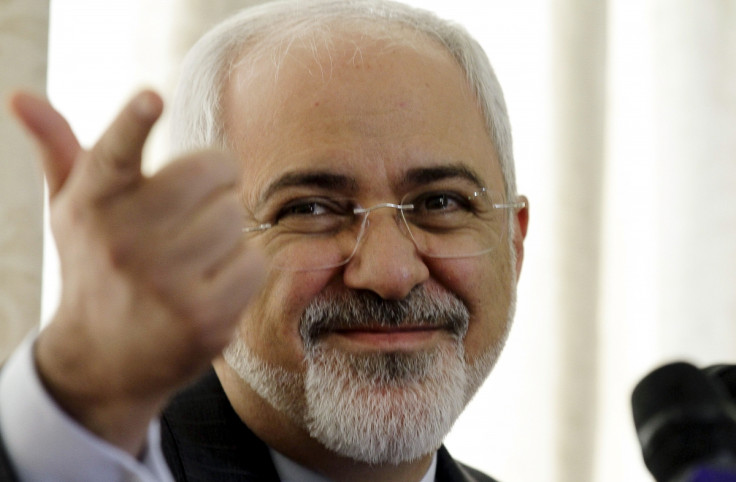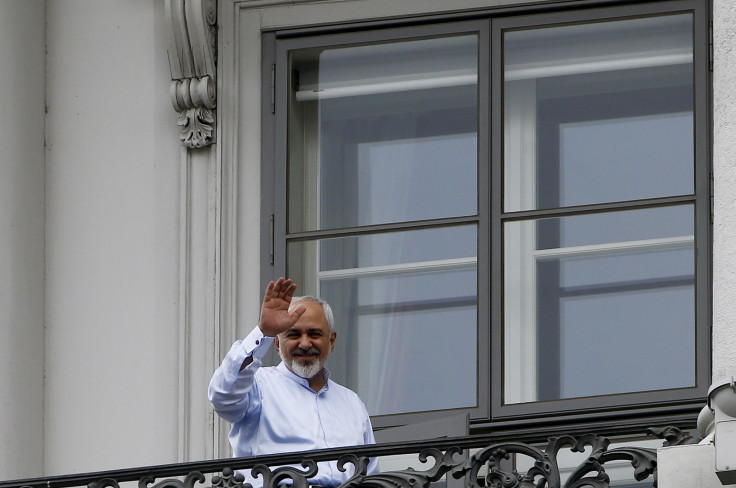I used to support the US-led nuclear deal with Iran – I was wrong
Iran's nuclear deal with the US and Europe has made the Middle East more divided, unstable and violent.
Last week I sent out a tweet about the state of the Middle East after the Iran nuclear deal, in which I argued that the agreement "has made the Middle East a more violent, unstable, and dangerous place".
The tweet – viewed over 35,000 times at the time of writing – engendered many responses, a few in support, but many in outrage: 'How can you be against an anti-war, anti-nuclear, anti-sanctions deal?' they asked. 'Do you not want peace and prosperity for the Iranian people?'
I didn't always feel this way about the Iran deal. Although I had occasional doubts, I was mostly supportive, even optimistic. I had never bought into "nuclear Iran" scare stories, considering them to be warmongering propaganda. I had never believed that the Iranian regime was close to having nuclear weapons, and that even if it had them it would ever use them.
I understood the Iranian regime's core need as a need for international legitimacy – this is a regime that was born in 1979 ringed by enemies, and almost immediately engaged in a devastating and prolonged war (with Saddam Hussein's Iraq) that sought to uproot it. The regime, I understood, needed the deal for the same reason it needed the nukes: To ensure that its existence was no longer threatened.
But I also never saw the deal to be simply about nuclear weapons vs sanctions – I consider that view rather myopic. Put in its historical and geopolitical context, the deal is about more than just the lifting of sanctions. It is about the final legitimisation of the Iranian regime and the normalisation of its relationship with the world as an acceptable and valid partner.
My optimism about the Iran deal was based upon two main reasons - the first being the potential economic and political liberalisation it would bring, and the second being the belief that it would catalyse a wider regional drive to reduce violence and war.

Economic and political reform
I thought that the momentum created by the lifting of sanctions would be used by Iran's regime reformists to push for economic and political liberalisation. Sanctions rarely change the behaviour of a committed regime and instead punish and weaken society, critically reducing its ability to push against its own regime, and hence leading to entrenchment rather than change.
I had hoped that the lifting of sanctions and the return of foreign trade could create a momentum that can lead to an "opening up" of economic and political space within Iran, allowing civil society and native reformers some breathing space.
I now see I was wrong in that hope.

Iran's regime – even its presentable faces – continue to mock those who call for human rights or political liberalisation. In this astounding clip (recorded last month in Oslo), Iranian foreign minister Javad Zarif responds to a question posed by an Iranian academic with accusations of "Iranophobia".
It's almost tragicomic and reminds me of sympathisers with the Egyptian regime responding to criticism of General Abdel Fattah al-Sisi's dismal human rights record with accusations of "hating Egypt".
Well – perhaps the human rights situation won't immediately improve, but maybe the renewed economic dynamism can lead to an economic liberalisation that can improve the lot of many Iranians? Unfortunately, it now looks increasingly more likely that the prime benefactors of new business contracts will be none other than Iran's Islamic Republican Guards Corps (IRGC), which control an increasing sector of Iran's economy, especially in heavy industry and infrastructure (the very industries that will probably see the first, and largest, business contracts).
The IRGC, created in 1979 to "protect the Islamic system", increased their power during Ahmadinejad's term, and helped crush Iran's Green Revolution in 2009. Their expanding role has led several Iranian friends to comment that their country seems to be gradually transitioning from a theocracy to a military dictatorship. This may seem ironic if not for historical precedents – a force established to protect a ruling establishment, ending up controlling, dominating, and overshadowing that establishment.
In short, I had initially hoped that the Iran deal would give Iran's entrepreneurs, reformists, and civil society at large more breathing space, but I now see that it's more likely that we'll see exactly the opposite, with existing powers entrenching themselves even further.
Reducing war and violence
I was also initially optimistic about the Iran deal due to my belief that it would lay the groundwork for a wider regional agreement that would reduce violence and defuse war.
Iran's regime, as I have mentioned, was under siege for most of its lifetime and regularly threatened with war or regime change. The deal removes the existential threat of a Western-led invasion, in effect giving the Iranian regime immunity against foreign-led regime change. My initial optimism was grounded in a belief that the regime's aggressive foreign policy will become far more moderate if it no longer feels existentially threatened.
Additionally, I thought that the United States would use the diplomatic momentum created by the deal to lead a regional effort to reduce tensions; primarily by getting Iran to help a Syria transition or resolution, and "rebalancing" the region through a US-led Iran-GCC détente. There were some early signs of this, with the UAE's Foreign Minister visiting Iran in late November 2013, after which there was talk about an Iran-UAE presidential summit (which unfortunately never materialised).
I now see that I was wrong about this as well. The region, post Iran deal, has become even more unstable and more violent, due to choices made by both Iran and its regional competitors, the GCC block.
We cannot be prosperous unless we are also at peace, and we deserve better than to be cannon fodder in a regional war.
Iran's foreign policy was not at all tempered by the deal – it only became more aggressive, ramping up support for Syria's Assad and with the IRGC even going to the extent of recruiting and training Afghani refugees to fight in return for asylum for their families. Simultaneously, the GCC countries felt so threatened by the Iran deal that they intensified the regional conflict in Syria, and opened a new front in Yemen.
Whether it's the Iranian regime or the GCC that are more responsible for the increased violence is debatable; but the point stands that the Iran deal contributed to an atmosphere of insecurity, instability, sectarianism and violence. It created a situation which empowered (rather than moderated) aggressive foreign policy among both Iran and the GCC. The Iran deal could have made the region better – but it ended up making it worse.
Is there a better deal?
So what is the alternative? It's commonly argued that to reject the Iran deal is tantamount to advocating war – but I reject this view. The alternative to a short-sighted deal is a better and wider deal, one that is sustainable and that stands to empower the region's societies rather than precipitating further war and empowering tyrants and terrorists.
It is of course too late, in a way – the deal has already been concluded, and the regional situation has mutated and has become far more complex since.
We can only hope that Western players – especially those that played a role in creating the region's mess – would use their diplomatic capital for a better outcome for the region's societies. I say this with bitterness, because the region's own players do not seem to be interested in de-escalation, and seem to find sectarianism the convenient and even pragmatic thing to do.
It is the average Iranian and the average Arab who will suffer the most in an atmosphere of rampant terrorism, sectarianism, and war. We cannot be prosperous unless we are also at peace, and we deserve better than to be cannon fodder in a regional war.
© Copyright IBTimes 2025. All rights reserved.






















